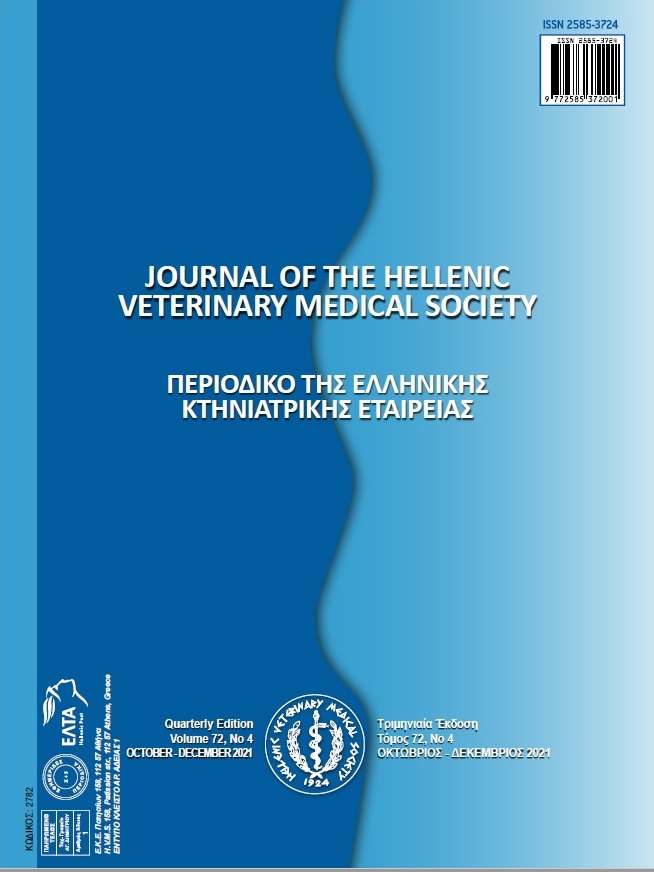Clinical and bacteriological analysis of respiratory tract infections in sheltered dogs and determination of antibacterial treatment options

Περίληψη
Λεπτομέρειες άρθρου
- Πώς να δημιουργήσετε Αναφορές
-
KÖSE, S., MADEN, M., & SAYIN, Z. (2022). Clinical and bacteriological analysis of respiratory tract infections in sheltered dogs and determination of antibacterial treatment options. Περιοδικό της Ελληνικής Κτηνιατρικής Εταιρείας, 72(4), 3491–3502. https://doi.org/10.12681/jhvms.29441
- Τεύχος
- Τόμ. 72 Αρ. 4 (2021)
- Ενότητα
- Research Articles

Αυτή η εργασία είναι αδειοδοτημένη υπό το CC Αναφορά Δημιουργού – Μη Εμπορική Χρήση 4.0.
Οι συγγραφείς των άρθρων που δημοσιεύονται στο περιοδικό διατηρούν τα δικαιώματα πνευματικής ιδιοκτησίας επί των άρθρων τους, δίνοντας στο περιοδικό το δικαίωμα της πρώτης δημοσίευσης.
Άρθρα που δημοσιεύονται στο περιοδικό διατίθενται με άδεια Creative Commons 4.0 Non Commercial και σύμφωνα με την άδεια μπορούν να χρησιμοποιούνται ελεύθερα, με αναφορά στο/στη συγγραφέα και στην πρώτη δημοσίευση για μη κερδοσκοπικούς σκοπούς.
Οι συγγραφείς μπορούν να καταθέσουν το άρθρο σε ιδρυματικό ή άλλο αποθετήριο ή/και να το δημοσιεύσουν σε άλλη έκδοση, με υποχρεωτική την αναφορά πρώτης δημοσίευσης στο J Hellenic Vet Med Soc
Οι συγγραφείς ενθαρρύνονται να καταθέσουν σε αποθετήριο ή να δημοσιεύσουν την εργασία τους στο διαδίκτυο πριν ή κατά τη διαδικασία υποβολής και αξιολόγησής της.


